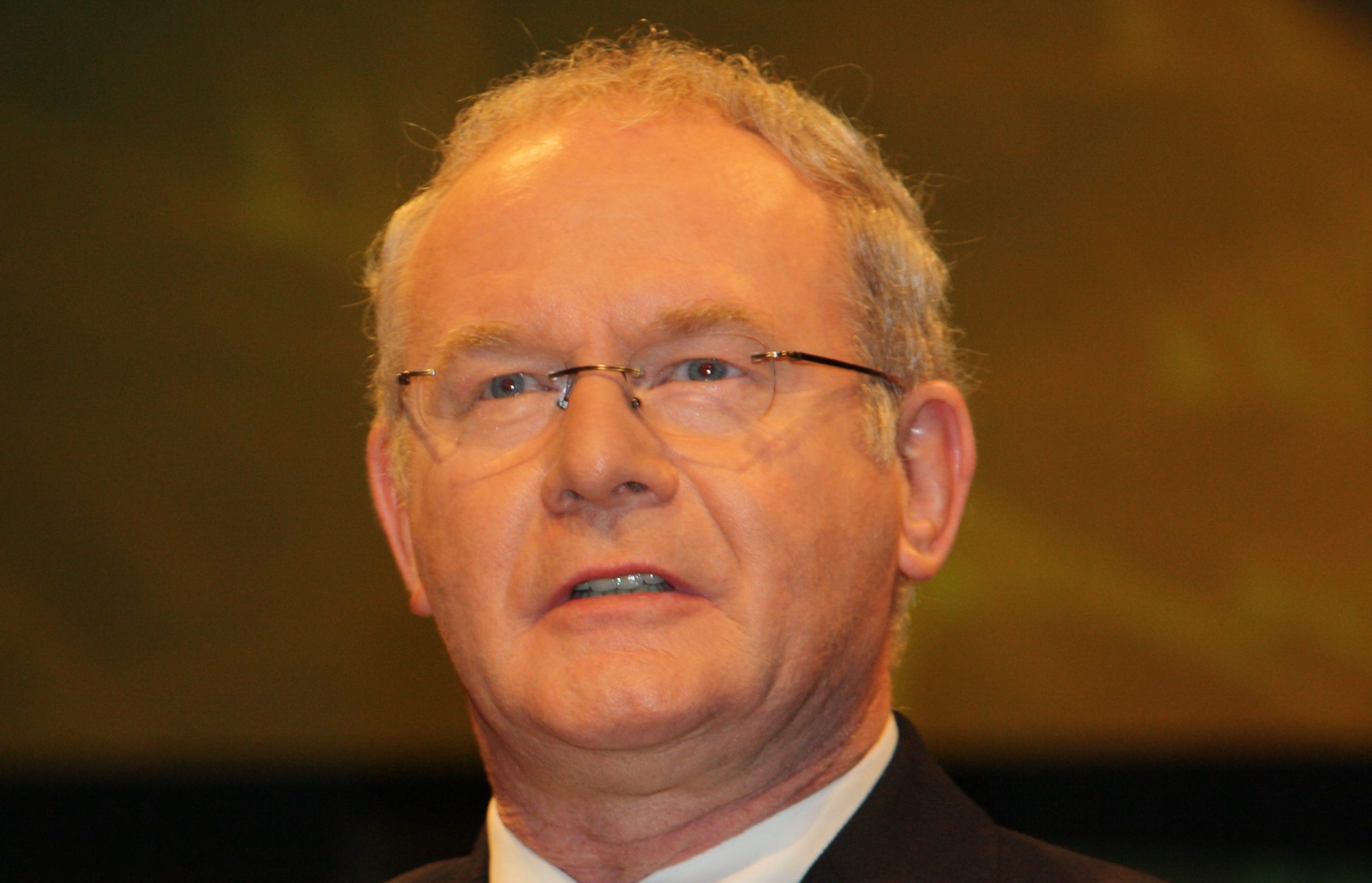It is clear that all of Ireland lost a unique and remarkable Statesman on Tuesday. The life of Martin McGuinness is an interesting and complex one, but the most resounding achievement of his political and personal life, was his transformation from hardened IRA commander to respected Statesman and advocate for peace.
Of all that will be written about Martin McGuinness, (and there will be a lot written) no-one, no matter their political persuasion will be doubting the strength, determination and effort that McGuinness devoted to ensuring the continuance of the Peace Process in the North of Ireland. McGuinness personally changed from a man willing to use violence to achieve the unification of Ireland, to one who strove for a more peaceful method of unification.
He worked strenuously with Unionist colleagues and former enemies to ensure that it was peace that came first and foremost, and accepted that there must be a democratic solution, instead of a violent one, to the question of Irish Unification. Martin McGuinness’ figure looms large over many events, which have shaped recent Irish history, but it is also necessary to point out it was also Irish history that played a huge part in the forming of his character. His family was poor, his home overcrowded, his neighbourhood, Derry’s Bogside was a marginalised Catholic slum. His father long suffered from ill health, made worse by over-work in an iron foundry.
McGuinness did poorly in his 11+ examinations and went to a technical school, which he left to become a butcher’s assistant, and he witnessed the Army shoot a man dead when he was 19. This led to him joining the Republican movement and like many young men from Nationalist areas, he was poor, angry and he wanted to do something about it. By the time he was 21, McGuinness was already second in command of the Derry IRA when in 1972 the British Army’s Paratrooper regiment murdered 14 civil rights protestors in the Bloody Sunday massacre. However, McGuinness was not himself a saint; he was the Provisional IRA’s Chief of Staff when they assassinated Lord Mountbatten in 1979, followed the next day by the killing of 18 soldiers in a bomb attack.
He was also one of the main architects of the IRA’s 1994 ceasefire, which ultimately led to the beginning of Peace Process. Growing up in Belfast during the Peace Process and coming from a Catholic-Protestant mixed background, I feel indebted to leaders such as Martin McGuinness, and even the late Ian Paisley because they were able to reach over boundaries and put away their hatred in order to reach an agreement acceptable to both communities. It is sadly only in recent months that things have begun again to fall apart, largely due to the arrogance and bitterness of former First Minister Arlene Foster, and the future of the North is now hanging once again in the balance.
I believe Mr. McGuinness leaves behind a great legacy, which highlights that we can all change, and it is only through working with others with kindness, compassion and understanding that we can move forward. Northern Ireland is now a tourist hotspot. Belfast is thriving in ways that seemed unimaginable to me growing up, and it is largely due to the legacy of peace that leaders such as Martin McGuinness have left behind.
Image: Wikimedia Commons

